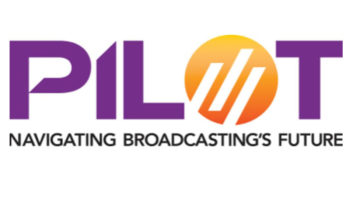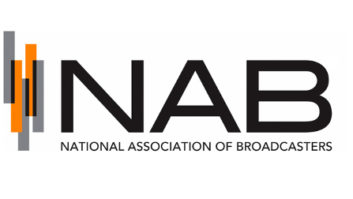Paul McLane is Radio World U.S. editor in chief.
The NAB is taking friendly fire right now from some members and others who disagree with its strategy on the performance royalty issue. Those disagreements are understandable, given the sensitivity of the topic; but the reaction, particularly among some non-broadcaster pundits who benefit from stirring things up, is out of proportion, and their stridency is unfortunate.
I hope this flap doesn’t dissuade the organization from pursuing the smart, politically savvy approach it has been taking of late.
Let’s look back for a moment. Until recently, NAB’s efforts to influence matters in Washington recently had been surprisingly ham-handed. For broadcasters, the David Rehr years were not good ones for getting things done on the Hill.
Wisely, after Rehr, broadcasters turned to a Capitol Hill insider to help them better navigate these treacherous waters. Some quibble that Gordon Smith isn’t Eddie Fritts: “We really need a broadcaster to lead us,” they say. But that’s what the NAB board is for; and Smith works for them. They hired the man because he knows how to manipulate Washington levers, or (to mix metaphors) how to read legislative tea leaves and re-stir them to make the tea taste as sweet as possible. But don’t lose sight of this: Ultimately, broadcasters tell Smith what to do, not the other way around.
Having hired him, broadcasters would be unwise to not take full advantage of what they’ve got. NAB’s current strategy is a result of those earlier choices, and it is a pragmatic, appropriate one.
As I’ve said many times, radio has a choice in this PRA debate.
It can refuse to acknowledge reality and let Congress dictate terms. Radio will lose under that scenario because there is absolutely no way radio will retain its historic protection from these royalties much longer. The argument legislators will consider is not whether radio airplay benefits artists (clearly it does). The argument will be whether airplay without artist consent is acceptable; and we can’t win that fight. Our media world, and the world of content rights, has changed forever; and radio’s bill is about to come due.
Instead of digging trenches, then, radio can participate in difficult but responsible discussions with the music industry … while using all of its muscle to obtain the best terms it can. It can aim very high for what it wants, using this process to gain its own benefits — bennies that will outweigh the cost in the long term. And it has been doing just that, finally.
The NAB’s “term sheet” spelling out what broadcasters want in the performance royalty fight has prompted backbiting in some radio circles. But let’s recognize the document for what it is: a masterpiece of strategic positioning.
It surrenders nothing unless it gets something important back. It says to legislators, “We’re willing to be reasonable. But we aren’t conceding anything; and we want a lot in return.” It puts NAB in the position, finally, of appearing fair rather than intransigent, and of letting the music rights side react rather than attack for a change.
What does radio stand to gain here? For one thing, it would get rates it can live with, rather than rates imposed on it (example: a commercial or nonprofit station with revenues of $100,000 would pay $500 a year for unlimited use of music). And rates would kick in only if radio gets the support it needs for a dramatically increased presence of radio in mobile devices. A settlement also would bring the opportunity to create a powerful, reinvigorated partnership with content providers. It could take the CRB out of the picture. It could address online content limitations concerning AFTRA that have frustrated many stations. Further, even if nothing else, radio now comes out looking better and more reasonable. When was the last time that happened to radio in a national policy debate? Most of all, a settlement would bring legislative certainty. An agreement along these lines would put this knotty matter to rest, for good, on favorable terms.
It’s a document worthy of, dare I say it, Eddie Fritts.
Criticism from the radio side is more a reflection of dissonance between what larger and smaller broadcasters want; and that’s something NAB and its members need to address. If smaller stations feel disenfranchised, that’s a real concern. But unity is more important than dissent right now. Gordon Smith works for broadcasters; don’t blame him just because he’s the front man. Some of radio’s smartest, most active owners looked at this PRA situation and decided they couldn’t win under their old strategy; it is those owners who are putting these terms forward, with Smith’s advice; and we can be sure those broadcasters don’t want to pay money that they don’t have to. Caroline Beasley, Steve Newberry and their colleagues would not have gone this far without very solid reason.
Some think the labels now will cease to negotiate and that this step represents a huge cave-in on radio’s part. Some even suggest NAB will self-destruct over this or that radio will fall apart as a result. Those people must not think much of radio, which has proven to be among the most resilient media. Nevertheless, these decisions are not easy. They certainly can’t be solved with flat, peremptory declarations of imminent doom.
I criticized NAB and the music industry for lack of leadership in ever letting their partnership deteriorate. Now the two sides are talking, albeit with a congressional gun held to radio’s head and with plenty of doubt about the outcome. It’s going to take an act of courage for broadcasters to get behind any settlement. It’s not a popular path, or the easy one. But it is the smart road to take. It is in radio’s best long-term interests.











